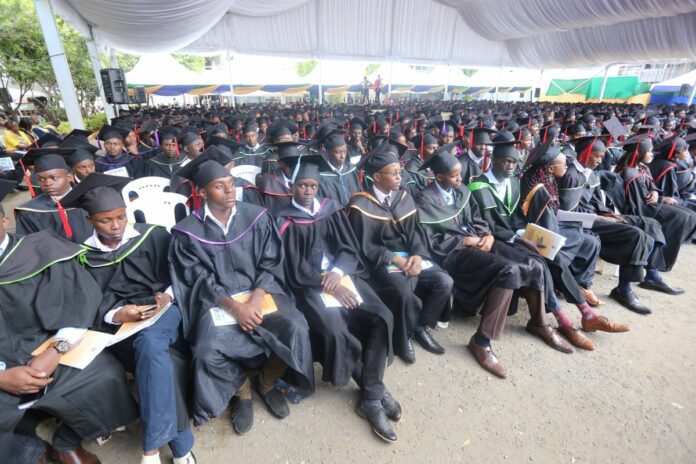University vs Technical College: Amidst the rising popularity of college diplomas, Kenyans have been left with the question of which between university and technical college is the better option. This is the question that this feature that was published by The Star sought to answer:
This prompted the government to invest in heavily such institutions, with the number of universities increasing by more than five times. What followed, however, was a bloated job market.
Given the situation, university education is now proving unattractive to some students. In the past four years, some students who qualify for university intake have opted for technical colleges.
In technical colleges, the wary lot seeks to pursue courses such as automotive engineering, plant engineering, masonry, plumbing, and other crafts as key drivers of its growth plan.
Notably, the number of those shunning university places for technical colleges has been on the rise since 2017 when the government admitted the first cohort under government sponsorship.
Before then, such courses were viewed as an inferior option mostly reserved for those who had failed KCSE exams. But times are changing and so are preferences.
In the pioneer year, only 60 students who had qualified for university opted to trade their spots for technical colleges. However, the number has steadily risen. In 2018, some 200 students opted for the technical courses although they qualified for university, 2019 (1,031), and this year it hit a record 4,840.
In a previous interview with the Star, Basic Education PS Julius Jwan, formerly of the State Department of Technical and Vocational Education, explained that the notable benefits of technical colleges include short but rigorous training.
Unlike a bachelor’s degree programme that takes four years to complete, many technical courses can be achieved in only two years, though some require three years. Also, there’s a better chance of quickly gaining employment.
Prof David Some, the former chief executive of the Commission for University Education, says more students need to take up opportunities in technical colleges.
NYS announces jobs with 25k to 85k salaries. See requirements
Some said currently, the country is fighting a skills shortage that is hindering the smooth implementation of industrial growth. He said the institutions are revered as centres that produce highly skilled manpower to ensure industrial development, which is still lagging behind in the country.
“We must refocus higher education by promoting technical and vocational training and changing the degree curriculum,” Some said.
Prof Some argues that the success of Kenya’s growth ambitions is hinged on an adequate supply of a critical mass of technical skills. He says in countries such as Germany and the Netherlands, the majority of those graduating from secondary school prefer technical colleges to universities.
“Technical colleges if well equipped and managed are actually the bearing of a nation’s economy… these are the hands that do the actual job, conceptualised by professors and university scholars,” Some says.
However, he dismisses the idea that the rise in popularity of technical colleges could be interpreted to mean that university degrees and education are becoming useless. Instead, Some notes the need for the two to work together to achieve a greater purpose of economic growth.
“Although there is a perception that getting a job after graduating from university is still difficult, university education is still viewed as important,” he says.
In a 2017 study, the Higher Education Loans Board revealed that a Kenyan graduate takes an average of five years before they can secure employment.
However, Prof Some says good university education is so tightly linked to a nation’s growth and economy.
Prof Stephen Kiama, the University of Nairobi vice-chancellor, argued that universities remain the mother of research and innovation. He decried that the country has failed to give the institutions a chance to use the research capacity in driving economic development.
This, he says, has left the institutions’ pile of work in research underutilised and only accounts for the scholars’ academic excellence instead of playing a role in transforming society.
“We need to change this, if we need to feel the impact of universities in the community, universities are supposed to solve problems in their immediate community first, for the younger scholars.
“As they advance their education, they don’t just look at the community but also address the national problems,” Kiama said.
He urged the government to relook at the higher learning institutions and engage scholars and researchers before implementing or making policies.
He concurred that the biggest problem facing university graduates is unemployment. Kiama said the institutions need to transform the training to enable their graduates to create jobs instead of waiting for employment after completing studies.








